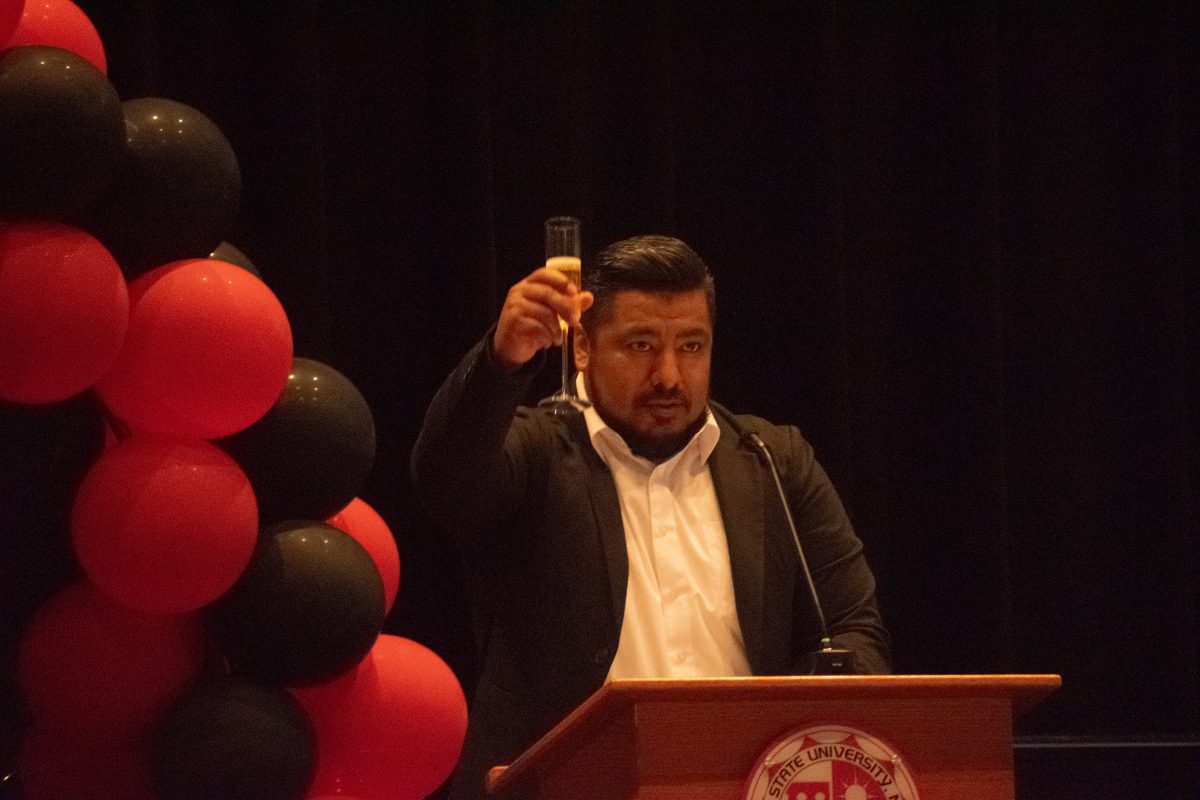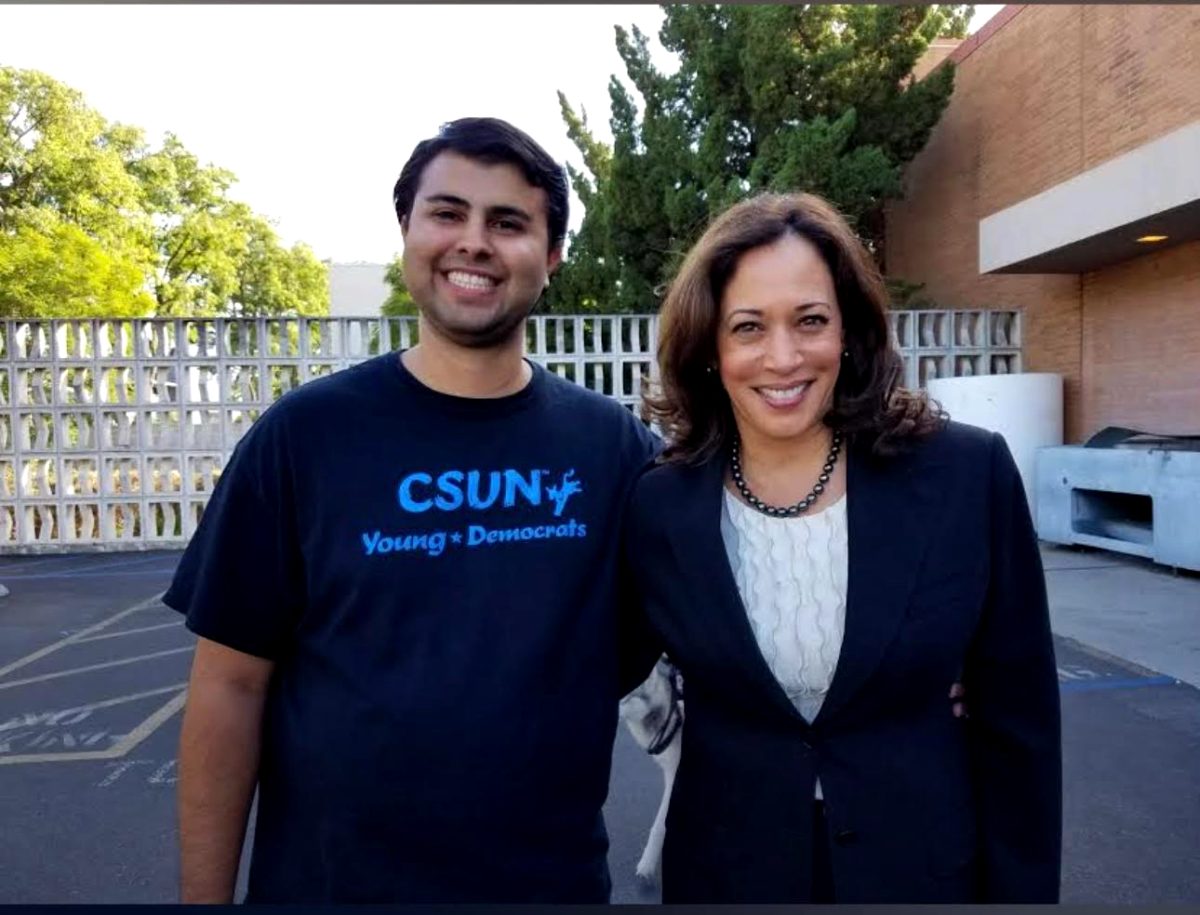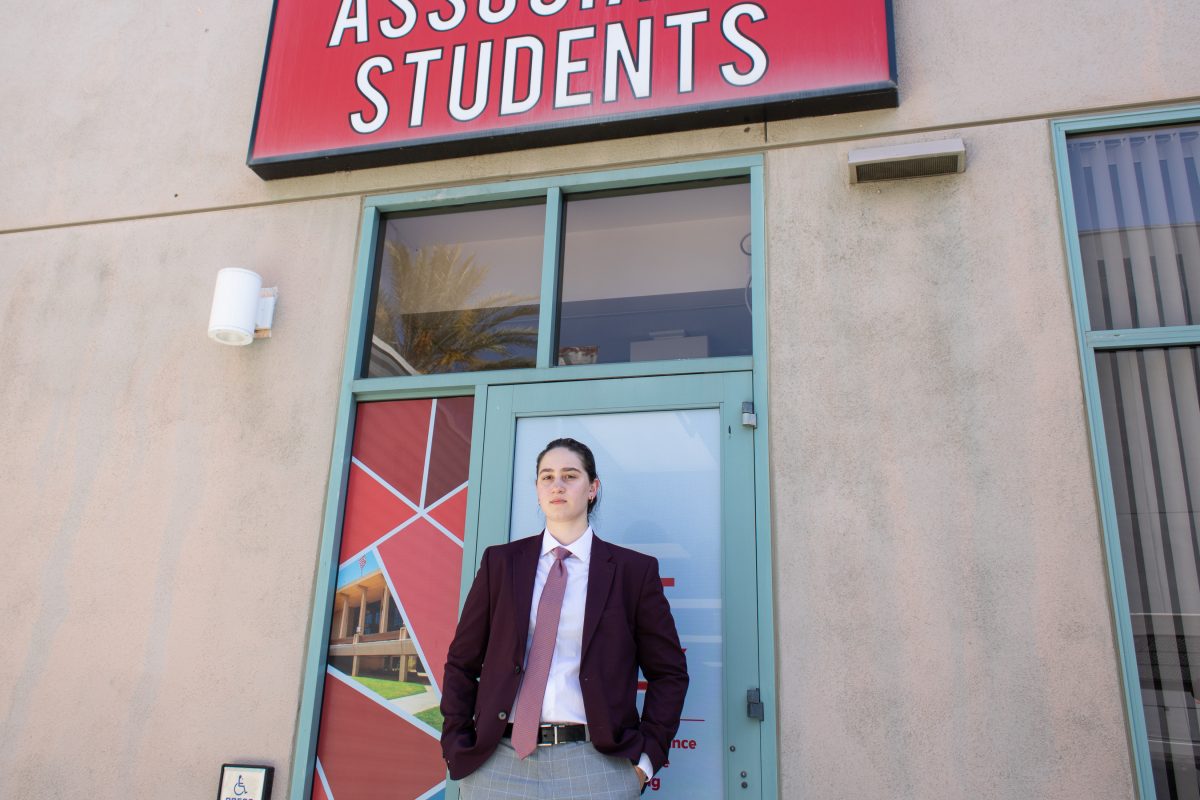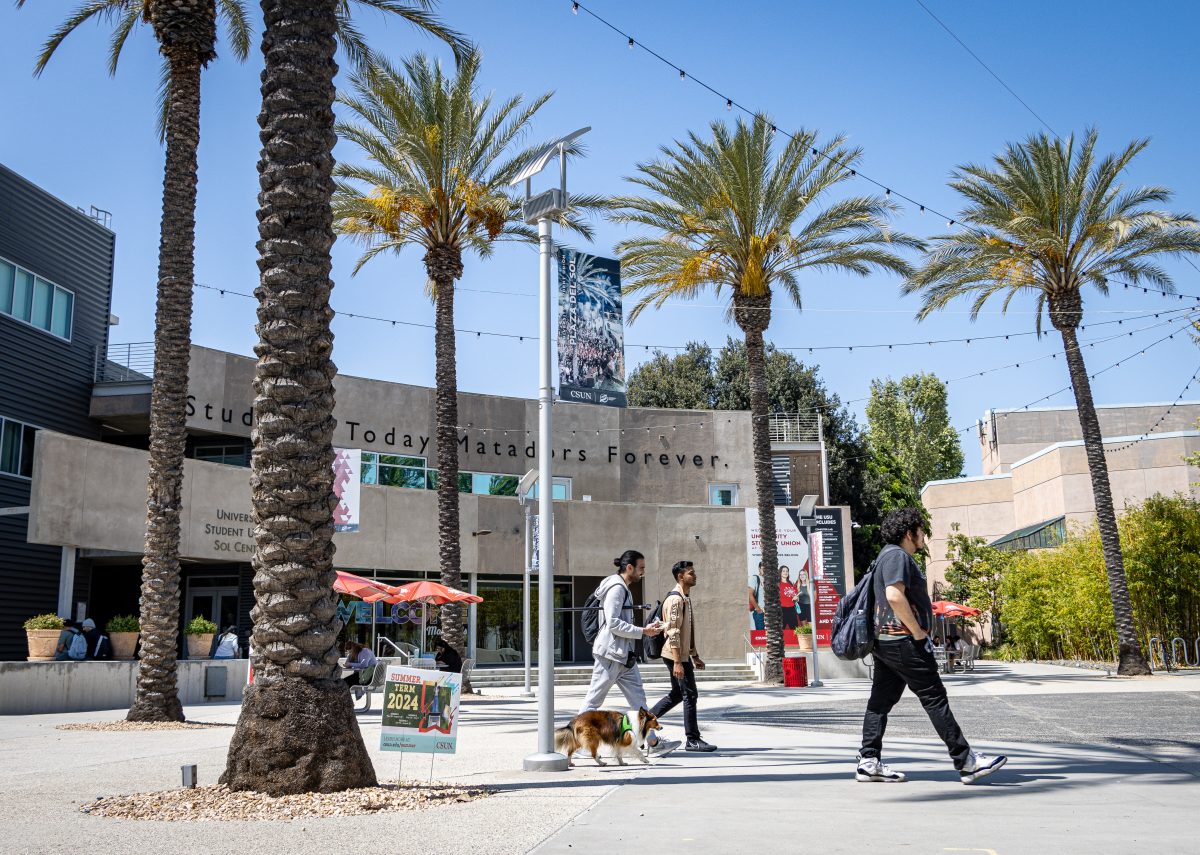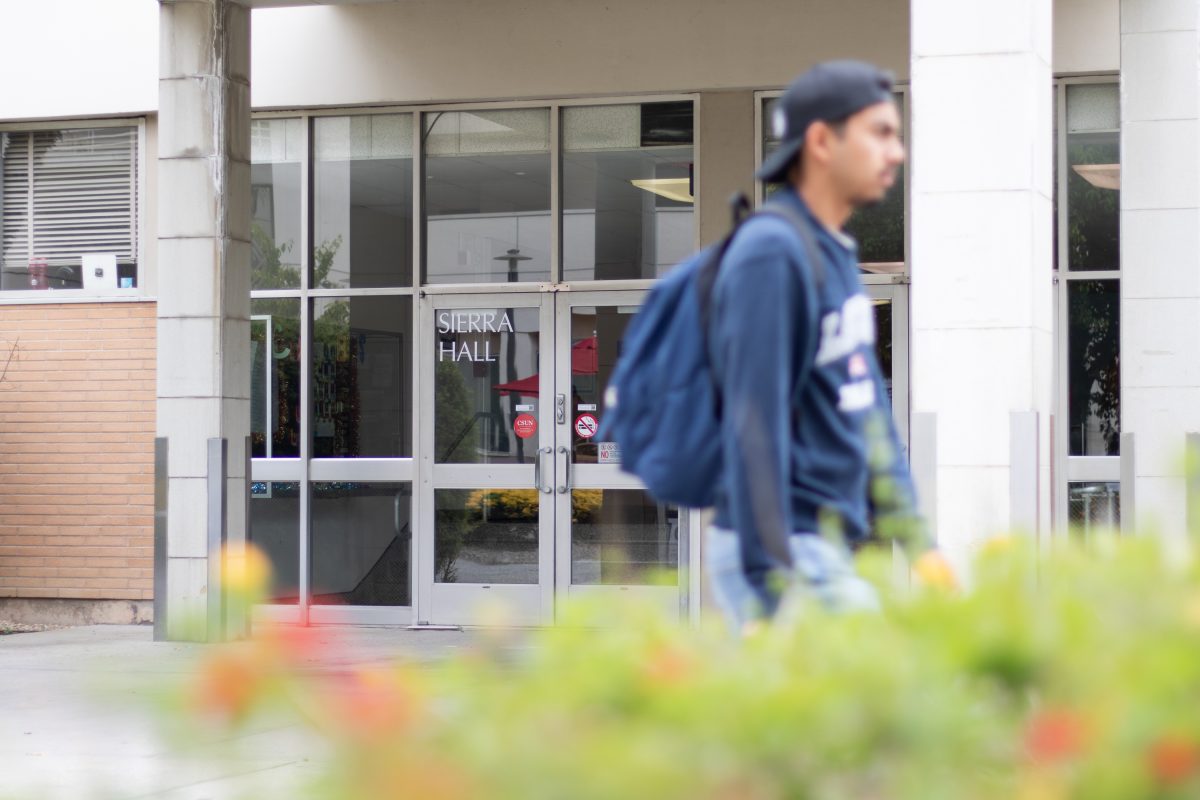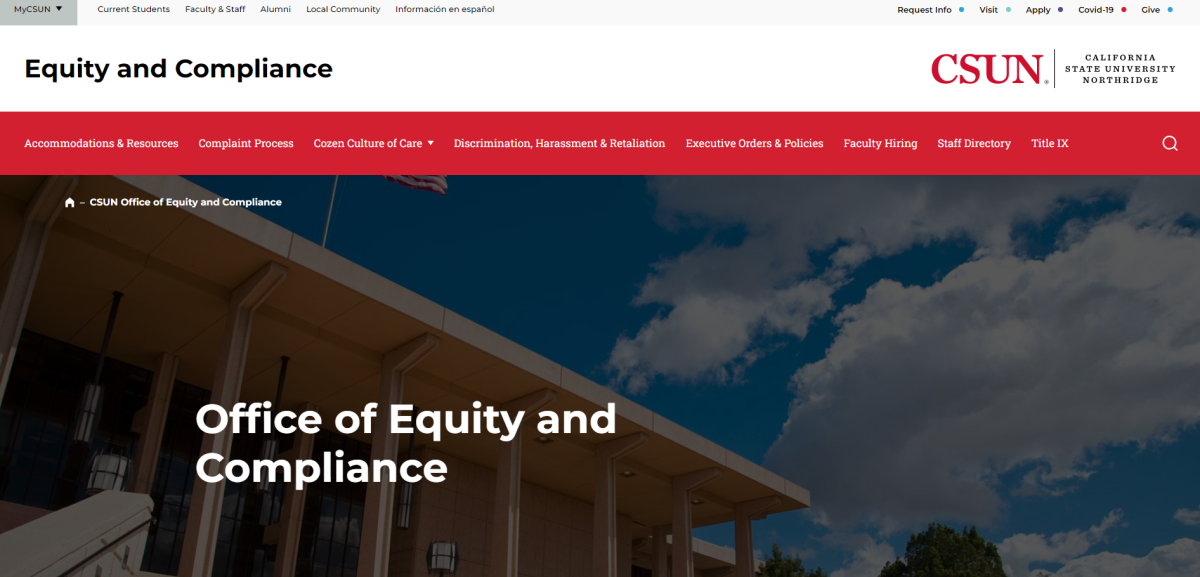Jemima Uriostegui, a CSUN junior, was finally able to speak to a representative after months of unsuccessful attempts to get through to the Federal Student Aid office when she was unable to submit the FAFSA application.
“Did you try submitting it early in the morning or late at night?” asked the person on the other end of the line.
She had.
A frustrated Uriostegui ended the call in the same place she started months before. The usually simple process of submitting the FAFSA form had now turned into a grueling three-month-long ordeal.
System glitches and communication problems cause uncertainty
Uriostegui is one of many CSUN students who experienced complications when filing the 2024-2025 FAFSA application due to problems with an update to the form. This led to delayed deadlines and uncertainty about whether students would receive vital financial help.
The Federal Student Aid office of the US Department of Education launched an updated version of the Free Application for Federal Student Aid (FAFSA) in late December of 2023. The form is usually available on Oct. 1 of every academic year. Students file the application to determine their eligibility for federal and state financial aid grants that subsidize their education.
The updated FAFSA form was supposed to be easier to fill out. However, due to complications and technical glitches in the roll out, students around the country had trouble filing it.
At CSUN, the overwhelming majority of the student body relies on financial aid. In 2023, 31,364 students, 86% of the student body, were recipients of financial aid, according to a CSUN financial aid report.
For Jemima Uriostegui, who is majoring in Child and Adolescent Development, the financial requirements of higher education add stress to the already demanding responsibilities of college life.
Uriostegui paid rent out of pocket after being waitlisted for student housing. With limited job options without a car and parents experiencing health issues that prevent them from helping her financially, she relied on student aid to pay her school fees.
“There’s so many other responsibilities that I need to take care of and money is the issue,” Uriostegui said. “The FAFSA really helps out so I don’t need to worry about the tuition. All my classes — that’s paid for— I just have to worry about the rest.”
One of the updates to the form allowed students with parents who do not have social security numbers to create accounts for their parents. However, the update did not work as expected due to technical glitches, preventing these students from submitting the form.
Uriostegui, who’s mother does not have a social security number, is one such student.
“I was able to make my dad’s because he has a social security number. But then when it came to my mom’s part, nothing worked. It wouldn’t go in,” Uriostegui said. “We put ‘no social security’ — it gave me the option. But once you get to the end of the page to continue, it sends you back, and they require you to put in a social security. You’re stuck there.”
Raul Rangel, a freshman majoring in Computer Science, is also the child of parents without social security numbers. He explained that submitting the FAFSA form was difficult for him due to similar technical issues.
“We still have to go through a different process, and there’s still problems in which we are unable to turn in our parents’ signatures because of the processing functions and corrections button not showing up,” Rangel said.
Rangel also said that FAFSA sent him an email about corrections that need to be made to his form, but they informed him that these corrections will not be accessible to complete until mid-April.
Students with parents without social security numbers were not the only ones who had problems submitting their FAFSA applications.
Katherine Cifuentes, a senior majoring in Child and Adolescent Development, said that when she and her younger brother, who will be entering CSUN as a freshman in the Fall, filled out their applications, she did not receive confirmation that her application was being processed.
Cifuentes’ brother was informed that his form was filled out incorrectly, but was not told what to do to fix it. When she called Federal Student Aid, she waited on the phone for hours trying to get through to someone.
As a first generation college student, Cifuentes said that relying on FAFSA was her only option to pay for her education, but this time, she was unsure what was going to happen.
“It’s the fear of, ‘Am I really going to get the information, and am I really going to get the money,’” Cifuentes said. “Especially for those who don’t have the initial stability, like myself. We come from an immigrant household and my parents sacrifice a lot, and they’re here to strive for a better life. It was just scary — not knowing.”
Delayed deadlines due to multiple complications
The federal government initially announced that information collected on the forms would be sent to universities nationwide at the end of January. This information, officially called Institutional Student Information Records (ISIRs), is used by schools to decide how much money to award each of their students.
But due to the complications, they were only able to start sending the information in March.
With this delay in mind, the California state legislature originally extended the usual priority deadline for the UCs and CSUs from March 2 to April 2, 2024. Since some of the state and institutional grants are awarded on a first-come first-serve basis, students are encouraged to file their FAFSA applications by this deadline.
With issues persisting, the state legislature fast-tracked a bill signed into effect on March 25 that extended the deadline by a full month again, to May 2, 2024.
“Usually, we get award letters out, probably mid-April, or early April,” said Shelline Warren, Director of Financial Aid and Scholarships at CSUN. “But without receiving that information that the student has applied for through the FAFSA application, we wouldn’t be able to deliver based on the dates that we have in the past.”
The CSUN financial aid office started receiving ISIR records on March 14. As of now, it has received at least 51,000 ISIR records for CSUN students.
“With delays receiving information and processing information, we anticipate that we should get award letters out to our new students in early May,” Warren said.
The CSUN administration extended its intent to enroll deadline for the Fall 2024 semester to June 1, 2024, to account for the late award letter.
Incoming students must let the school know that they will be attending by this deadline. Many wait until they know how much financial aid they will receive before making this decision.
Early this month, Federal Student Aid announced that there was incorrect tax data on some of the FAFSA forms that were submitted, further complicating an already botched rollout of the new form.
According to Federal Student Aid, they began to reprocess 5% of submitted FAFSA forms in the beginning of this month to ensure that students receive the aid that they are eligible for.
With the new May 2 priority deadline now looming, students who have not submitted their FAFSA forms still have time to do so. Federal Student Aid will be racing against the clock to fix these issues that may prevent students from receiving financial aid.






